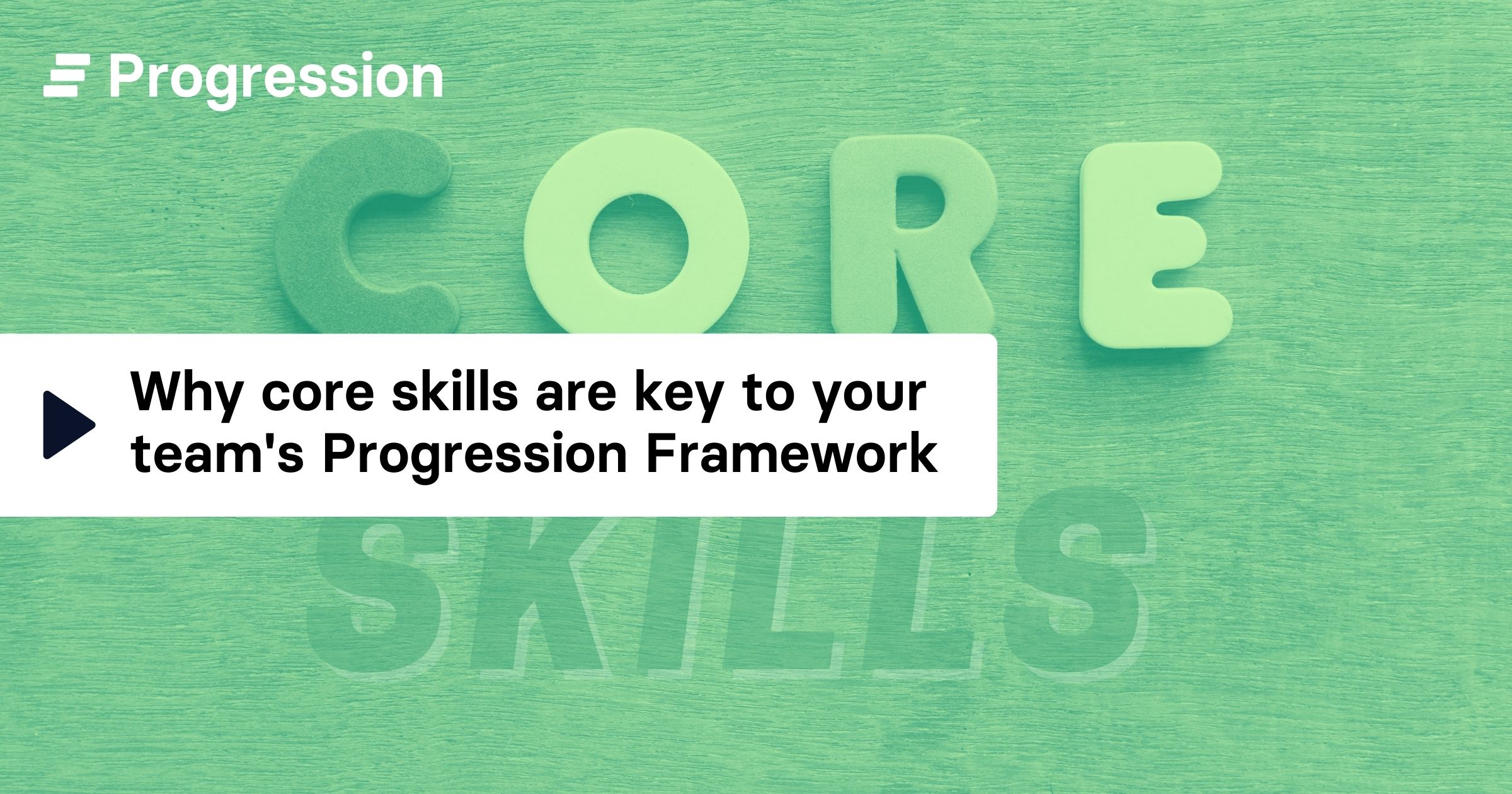When building your progression framework you will inevitably use some skills that are not specific to your team. Communication, Initiative, Team Leadership, Hiring and Org Design - these are skills that are required business wide. At Progression we call these Core Skills.
We encourage core skills to be the same across a business. It may seem counterintuitive - why should you as the design manager care about the engineering or people team framework? Well. Internal mobility. Culture. And ease of progression management. Let's explain.
What's the problem?
When writing skills, it's tempting to make them as specific as possible. We see skills like this all the time:
Communication Level 1: You must be able to communicate design briefs to your fellow UX designers, plus external design teams including UI and Content teams.
Which seems sensible, it's suitable for a junior designer. What's the problem? Well it can't be used by anyone else. Because meanwhile the engineering team's framework says:
Communication Level 1: Communicates clearly with fellow software engineers using Slack, email and Jira, with respect to writing code and peer reviews.
Whereas could they not both be this?
Communication Level 1: Communicates effectively with immediate peers
Why does that help?
Internal mobility
One of the premiere benefits of having a progression framework is to allow your team to visualise what they need to do to progress to the next level. And generally that means the next rung up in the team.
But what if their natural progression is outside your team? And more to the point, what if there’s someone else in the organisation who would love to join your team?
Internal mobility is key to retention in a business. Your current employees are cheaper and better at their job than new employees. Keeping as many skills as possible consistent across the business markedly improves the potential for internal mobility.
You have a Software Engineer who's been in your team for five years. They've realised it's not their calling. Consistent skills across the business means they can see they have two thirds of the skills required to move into Product Management already. You are going to lose them as an engineer anyway, this way they stay within the business and you end up with a Product Manager with all the knowledge of your team. Everyone wins.
A shared culture
All businesses want a shared culture. You probably have values, a mission and an employees promise. What better way to push the shared nature of these values, than by your team knowing they're working towards the same definition of Communication. That Initiative is valued in other teams the same way it is in yours. Or that Team Leadership is governed by the same guidelines whether it's your team or a fellow manager.
Future easiness
Isn't it nice to know that someone owes you a favour? How much nicer if it's owed by senior management or the people team?
Having core skills makes expanding progression frameworks between teams much easier. Much easier. You will have done 50-70% of the work for all future teams for them. It's not just the people team who'll owe you a favour, it's every other team. They are going to thank you. If they don't, ask us, and we'll explain just how much work writing skills can be.
In conclusion
Of course you'll need separate craft skills. A marketing manager doesn't need to know how to write code. An associate designer doesn't need to know much about the sales funnel. But by making as many skills as possible transferable you open up internal mobility, you're promoting a shared culture and you're make it easier to manage progression across the business.
So. Core skills. Use them across the business and everyone wins.



